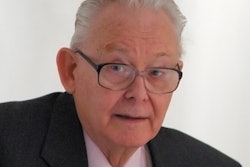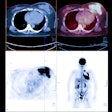Paul Lauterbur, Ph.D., who received the Nobel Prize for his role in developing MRI, died on Tuesday at his home in Illinois of kidney disease. He was 77.
Lauterbur was one of the first scientists to use nuclear magnetic resonance spectroscopy to study molecules, solutions, and solids while at the State University of New York at Stony Brook. In the early 1970s he began applying the technology to the study of biological organisms.
He discovered that using a static magnetic field and varying the intensity of a second magnetic field across his subjects yielded clearer signals, allowing better imaging of different tissues, according to the University of Illinois at Urbana-Champaign, where he worked for 22 years.
In 2003 Lauterbur won the Nobel Prize in Medicine or Physiology for his work, sharing the honor with Sir Peter Mansfield of the University of Nottingham in the U.K. Mansfield demonstrated a method of improving the utilization of magnetic gradients and showed how the resulting signals could be mathematically analyzed.
By AuntMinnie.com staff writers
March 30, 2007
Related Reading
Medicine prize launches Nobel season next week, September 29, 2005
Did Damadian’s mercurial past cost him the Nobel Prize?, October 28, 2003
Nobel medicine prize winner thought it was joke, October 7, 2003
MRI idea seized Nobel winner for quarter century, October 6, 2003
Copyright © 2007 AuntMinnie.com




















